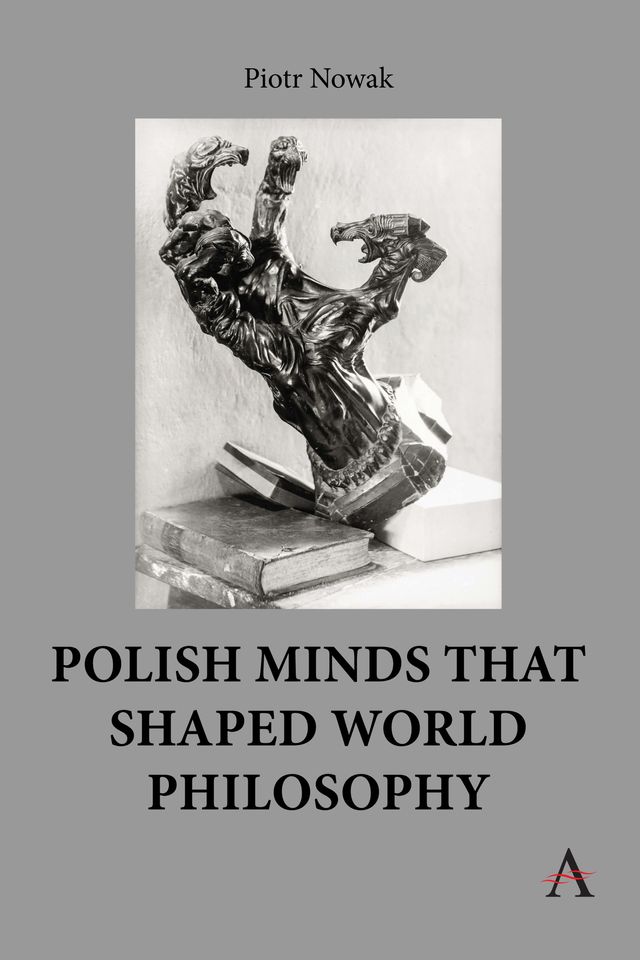Piotr Nowak
ISBN: 9781839998546
Pages: 260
Pub Date: May 2026
Imprint: Anthem Press
Piotr Nowak
ISBN: 9781839998546
Pages: 260
Pub Date: May 2026
Imprint: Anthem Press
What role did Polish philosophers play in shaping human destiny?
First of all, one must keep in mind that the philosopher’s role is to eradicate stupidity, especially when it is dressed in fashionable togs, wrapped in clever phrases, and passed off as truth or, at least, as good common sense. He opposes those who believe they know everything when, in fact, they know nothing at all. He is confident in his wisdom for he does not claim to know what he does not. One simply cannot know everything, he repeats; the person who has an answer to every question is a fool. Or an ideologue. In other words, the philosopher is wise because he does not talk for the sake of talking. His knowledge is inevitably partial. The question arises: is there a reliable method to discern wisdom from folly? How can we unmask thoughtlessness that dresses itself in the peacock feathers of applause and masquerades as wisdom? Who sets the criteria that separate is the wise from the hollow and the vain? The philosopher does, precisely the very one who knows that he knows nothing. That is how Socrates would put it. But the Socratic tradition never really took root among Polish philosophers.
I have often wondered why Leszek Kołakowski—in his early life a Marxist, later a Christian—did not become the Polish “Socrates.” Of all Polish philosophers, he was probably the only one who qualified for the role. Yet although charismatic and excellently educated, he could not be such a figure while a member of the Communist Party and a follower of other people’s ideas. He could only have become one in exile, in the 1970s, when he assumed an informal leadership in the democratic opposition. This, however, is a fiction. One cannot be a “Socrates” at a distance, in absentia.
The prewar analytic philosophers, like the postwar “Marxians,” were confident in determining the conditions of cognition. They never spoke on things they did not understand, but also knew exactly what they were talking about. Their knowledge was not unrelated to the environment from which they arose and which they went on to develop/shape. For that reason, their philosophical choices were also political ones. Philosophy, after all, challenges the monopoly of politics (and, if religion influences politics, of religion as well) in the development of one’s world-view. Independent thinkers cannot be told what to think or how to think. Philosophy weans one off humility, undermines authority, and insists on independent judgment which is not welcomed by politicians or by the average person. The general distrust toward philosophy necessarily feeds its proverbial “elitism,” that attitude of “anything you can know, I can know better.” The philosopher is not at ease in a crowd, and the Polish philosopher is no exception. It is not his element. He prefers the company of a few carefully chosen companions, meeting privately. That is enough for him. He can prove that virtues such as courage, friendship, justice, and wisdom—usually practiced in public life—may also be cultivated privately. In seminars, in homes, he finds his voice and regains balance.
Practicing philosophy on the periphery has often been presented in court—in the days of Socrates, under Hitler, under communists, and even in democracy—as something semi-criminal or utterly frivolous. At the same time, philosophers seem to make light of something essentially fundamental: that they know too much to be entirely safe and that their fate is already sealed. Those who recognized this early adapted to the prevailing historical conditions. They kept their heads, it is true, but at the cost of betraying their vocation. They invoked ideology as the path of collective progress, only to spend the rest of their lives, in a Münchausen-like manner, struggling to haul themselves out of the swamp into which they had sunk—partly by the dictates of history, partly by their own free will. I suggest dismissing the rumor spread by Czesław Miłosz about the “Hegelian bite” as nothing more than fairy tales. A quarter-century earlier, one of those who might have been susceptible to such a temptation had already preemptively discredited it. As Leszek Kołakowskie wrote, “No one is relieved of the moral obligation to oppose a system of government, a doctrine, or a social order that he regards as base and inhuman by pleading that he considers it historically necessary. We are against that form of moral relativism which assumes that the criteria for a moral assessment of human behaviour can be derived from knowledge of the secrets of the Weltgeist.”
